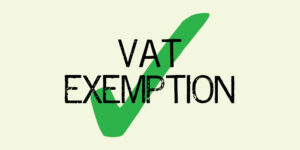Democracy, Mining & Ethics: Book Discussions with Justin Mudekereza
Have you ever wondered how the decisions we make in politics and business ripple through society? Or how ethical questions shape industries that fuel our modern life, like mining? These are exactly the questions that Justin Mudekereza explores in his discussions on democracy, mining, and ethics. In his books, Mudekereza invites readers to rethink power, responsibility, and the human cost behind natural resources. Today, we’ll dive into his perspectives and understand why these topics matter to everyone—from policymakers to everyday citizens.
Who is Justin Mudekereza?
Justin Mudekereza is a renowned author and thought leader who dives deep into the crossroads of democracy, ethics, and industry. With a unique ability to translate complex societal issues into relatable narratives, he has captured the attention of readers worldwide. His works often challenge readers to question assumptions, especially about industries like mining, which can seem distant but affect all of us.
The Concept of Democracy in Mining
You might think democracy is only about voting or governments. But Mudekereza argues that democracy extends into industries, too. He asks, “Who gets a say when mining operations are planned?” Mining affects communities, workers, and the environment. Therefore, the democratic principle of participation should apply here as well.
In his books, Mudekereza emphasizes that transparency and inclusive decision-making are not just political ideals—they are necessary for fair and ethical resource management.
Ethical Dilemmas in Resource Extraction
Mining is lucrative, but it often comes with ethical trade-offs. Should companies prioritize profits over environmental preservation? Mudekereza doesn’t shy away from these tough questions. He illustrates ethical dilemmas through real-life scenarios, like the displacement of local communities or pollution of water resources.
Ethics, in this context, is like a compass. Without it, even the most advanced technologies can lead societies astray.
Mining and Community Impact
Communities often bear the brunt of mining activities. Justin Mudekereza highlights stories of villages affected by mining, where livelihoods are disrupted, and local ecosystems are damaged. Yet, these same communities rarely have a real voice in the decisions that affect them.
Through engaging anecdotes, Mudekereza paints a vivid picture of the human consequences behind headlines about mineral wealth.
Political Influence on Mining Policies
Mining isn’t just an economic issue—it’s political. Policies can favor corporations over citizens or vice versa. Mudekereza explores how governments sometimes struggle to balance economic growth with social responsibility.
He stresses that ethical policies require political will, public engagement, and oversight—without these, the industry risks prioritizing profits over people.
Corporate Responsibility and Accountability
Corporations are often painted as villains in mining narratives, but Mudekereza advocates for nuanced discussions. He urges companies to adopt ethical frameworks and to be accountable for their actions, including environmental stewardship and fair labor practices.
He suggests that corporate responsibility isn’t just morally right—it also builds long-term trust and sustainability, which benefits both businesses and communities.
Case Studies Highlighted by Mudekereza
Mudekereza uses case studies to bring theory into reality. From gold mines in Africa to copper extraction in South America, he examines both failures and successes. These examples illustrate how ethical lapses can devastate communities, while responsible practices can foster trust and prosperity.
His writing often reads like a detective story, revealing the layers behind mining operations that most people overlook.
Sustainable Mining Practices
Sustainability isn’t just a buzzword in Mudekereza’s books—it’s a roadmap. He explores how mining companies can reduce environmental harm, engage communities, and operate transparently.
Examples include using renewable energy for operations, rehabilitating land post-mining, and investing in local education and infrastructure. These practices not only protect the planet but also secure the industry’s future.
Balancing Profit and Ethics
Can mining be both profitable and ethical? Mudekereza says yes, but it requires intentionality. He compares this balance to walking a tightrope: lean too much toward profit, and ethics fall; focus only on ethics, and sustainability suffers financially.
By offering practical frameworks, Mudekereza empowers readers to see that profitability and ethical responsibility aren’t mutually exclusive.
The Role of Citizens in Mining Decisions
Mudekereza emphasizes that ordinary citizens are not powerless. Through advocacy, voting, and public discourse, communities can influence mining policies. He often highlights stories of grassroots movements that successfully challenged unethical mining operations.
As he puts it, democracy only works if people actively participate—not just in elections, but in shaping the industries that affect their lives.
Global Perspectives on Mining Ethics
Mining ethics isn’t just a local concern—it’s global. Mudekereza draws comparisons between developed and developing nations, showing how different governance structures, economic pressures, and cultural values shape mining practices.
These global insights help readers understand that ethical dilemmas are universal, but solutions need to be tailored to each context.
Challenges in Enforcing Ethical Standards
Even with the best intentions, enforcing ethical standards in mining is challenging. Mudekereza explores issues like weak regulatory frameworks, corruption, and lack of transparency.
He underscores that tackling these challenges requires collective action—from governments, corporations, NGOs, and citizens. Ethics, he argues, cannot exist in a vacuum.
Future of Democracy and Mining
Looking ahead, Mudekereza is optimistic. Emerging technologies, stronger regulations, and increased public awareness offer opportunities to make mining more ethical and democratic.
He urges policymakers and industry leaders to embrace these changes before crises force them to do so. In his view, proactive engagement beats reactive measures every time.
Book Discussions and Public Engagement
One of the unique aspects of Mudekereza’s work is his focus on dialogue. He encourages book discussions, workshops, and forums where readers can debate ideas, share perspectives, and brainstorm solutions.
These discussions are not just academic—they inspire real-world change and empower communities to demand ethical practices.
Conclusion
Justin Mudekereza’s exploration of democracy, mining, and ethics challenges us to see the world differently. His books remind us that industries are not separate from society—they are intertwined with human lives, environmental health, and ethical responsibility.













